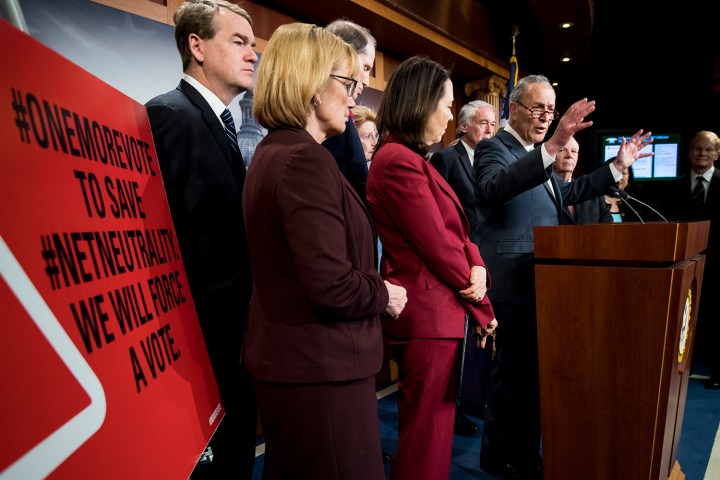
Using its powers as outlined in the Congressional Review Act, a group of Democratic senators has submitted a “discharge petition” which could set the stage for the restoration of net neutrality in the U.S. There are still quite a few hurdles standing in the way, however.
U.S. Senator Ed Markey (D-Mass.) teamed up with 32 other Democratic senators to submit the discharge petition which effectively gives the U.S. Senate the power to vote to roll back the regulations Federal Communications Commission chairman Ajit Pai introduced in December 2017. The vote, supporters claim, could occur as early as next week.
For that vote to succeed though, the resolution would need a majority in both the Senate and House of Representatives, in addition to President Donald Trump’s signature.
So, even though the resolution has the support of all 48 Senate Democrats, independent Senator Angus King (I-Maine), and Republican Senator Susan Collins (R-Maine), supporters still need to convince at least one more Republican senator to get on board for the vote to pass.
Then it needs to pass the U.S. House of Representatives, and get signed into law by Trump. It’s a bold move to restore net neutrality, with broad bi-partisan support, but it’s important to remember that Trump was the one who appointed Pai, and supported Pai’s efforts to loosen net neutrality regulations.
Supporters of the resolution are well aware of the legislative hurdles they have to clear. The vote won’t just be about passing the resolution, it will be about getting senators on the record as for or against net neutrality.
“This is our best chance to save the internet as we know it,” Senator Jeff Merkley (D-Oregon) said in a statement. “It’s totally unfair to give big businesses a fast lane on the internet while everyone else is stuck in the slow lane.”
In support of the resolution, sites like Reddit has rolled out an “orangered alert” banner urging users to contact their senators to support the resolution which could set the stage for a full-scale restoration of net neutrality. Still, as we mentioned, the resolution still has a long road ahead of it. Even if it succeeds in both houses of Congress, it could meet its end at the tip of the President’s veto pen.


